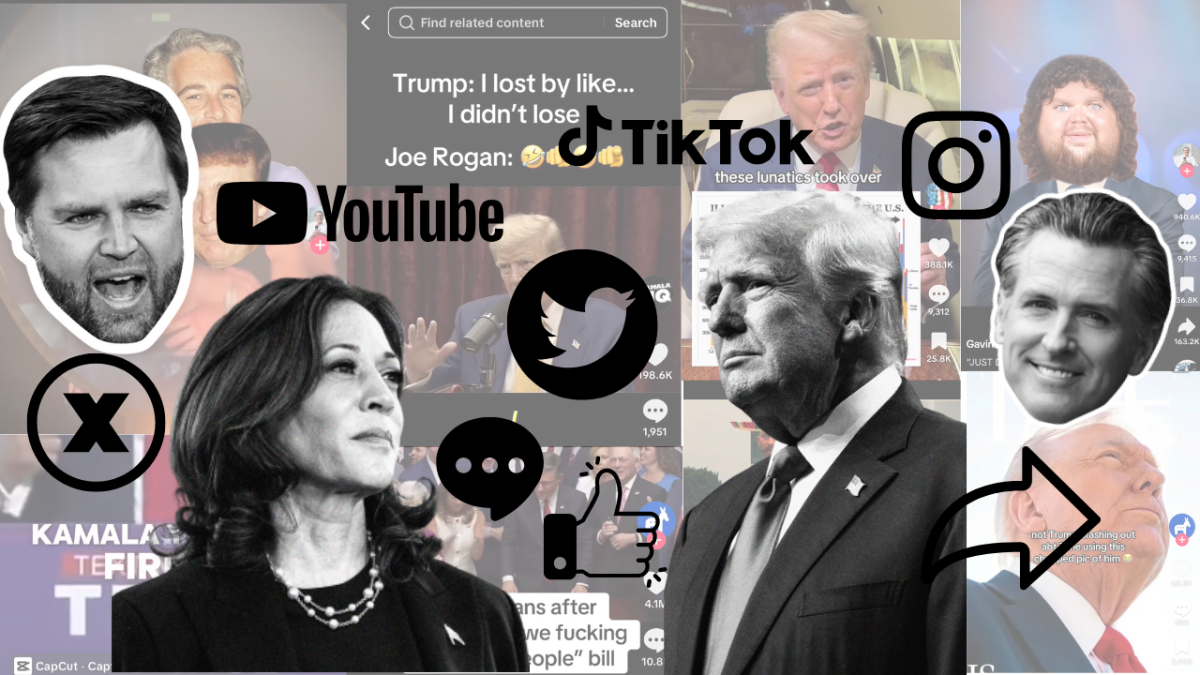Campaigning has undergone significant changes throughout the years of politics, and in recent times, using social media as a platform for candidates has become a major strategy.
With the surge of social media in everyday life, many politicians have made their way onto TikTok and Instagram’s ‘For You Page’. They use trending sounds, hashtags, and ideas to gain recognition with younger generations.
An example of this can be found in the 2024 election, which included Democrat Kamala Harris and Republican Donald Trump. When Harris took over Joe Biden’s spot as the democratic party candidate, her publicity team took to social media as a way to campaign for Harris in the election. It worked by gaining her publicity and getting Generation Z’s support.
Trump’s social media platform soon followed, and the two candidates began to make that their key way of campaigning for the election. Both parties would try to speak on important topics while using ‘trendy’ ideas, and it felt like they were oversimplifying the issues they were discussing, and instead making it more ‘likable’ to gain more approval from their possible supporters.
It makes politics feel immature. Seeing presidential candidates on social media and having their team film edits of the candidate, you begin to forget how they can be the future face of our nation.
It is very unlikely that politicians can post their full opinion through a 60-second video, and especially while trying to make it lighthearted and ‘trendy’. It is feeding into this idealism that politics and real-life issues are just pure entertainment.
Social media is a large opportunity for politicians to vilify the other party. The official Democrat party TikTok frequently posts clips or pictures of the opposing political candidates, and it is actively an attempt to tarnish their reputation.
Although the idea of trying to take down the other party has been a part of politics for a while, social media gives the opportunity to make it more widespread. A video may be just seen as ‘funny’, but it is just politicians trying to gain attention in a childish way and losing the appearance of professionalism.
Politicians being on social media is also giving opportunities for fake news, since there is no law requiring the truth about what they are posting. According to U.S. PIRG, “54% of Americans get at least some of their news from social media.” This means that a significant percentage of potential voters receive their news from biased, unverified sources.
Another example of social media not being a place for politics is when Trump got temporarily banned from Twitter after the January 6 attacks on the Capitol. This ban was primarily to stop further violence, which Trump was associated with. That shows that in a world of lightly monitored social media, politicians have an insane amount of control and can cause severe real-life issues.
Politicians have created social media platforms perceived by the public as a friendly way to connect with voters and the younger generation, but in reality, their use of social media is nothing but subtly disguised propaganda.
The future of politics is dependent on whether or not people don’t fall into the weird world of online campaigning, fake news, and utilizing lightly monitored social media.
Instead, focus on reading professional sources that fact-check and listening to the campaigners’ real explanation of their views, instead of a 60-second glorified video attempting to do so.


